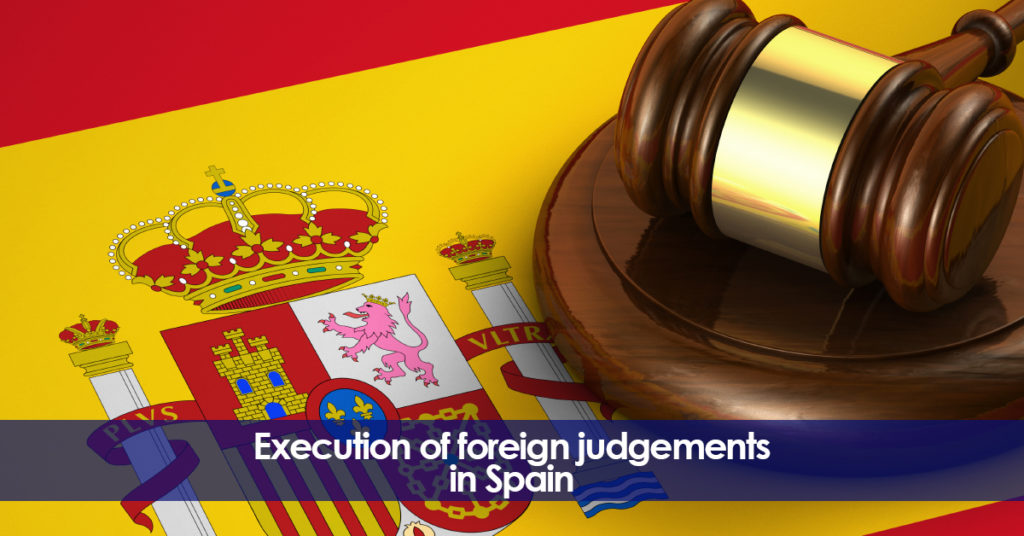Execution of foreign judgements in Spain
On this article, we will speak about: Execution of foreign judgements in Spain. In principle, it can be said that it is easier to enforce a court order from European Union countries in Spain. Because, there are numerous European Regulations, which facilitate direct executions. That is, without the need for any prior recognition procedure.
On the other hand, the execution of judgements granted in countries outside the Union is not direct. In these cases, the possible bilateral agreements that may exist between the countries apply. And, in Spain, the law of International Legal Cooperation in civil matters, law 29/2015, is essential.
In these cases, a recognition process will be necessary prior to execution. Which is known as an exequatur.
BREXIT. Judgements granted in the United Kingdom, in relation to proceedings that started before January 1, 2021, may be enforced under Union law. Post Brexit will need the exequatur.
Main differences
Thus, the basic difference is that when European law is applied, there is normally direct recognition and enforcement.
But, for third country judgements, the procedure is longer. Before being able to execute them, and demand their fulfilment, they must be recognised. Through the exequatur. Although, to the request for recognition in the exequatur, it could be added the request for execution. Also, it could be requested the approval of interim measures, like freezing order, embargo, etc.
Exequatur. The documentation to provide
It must be provided:
– The original or authentic copy of the foreign resolution, apostilled.
– If the judgement was issued in default, that is, without the defendant having answered; it must be proven that it was notified. And it was given the chance to defend the case.
– It must be proven that the court decision is final and definitive (that is, it cannot be appealed) and has enforceable force (that is, that it can be enforced, the debtor can be seized, etc).
– A translation.
The main causes of denial of recognition and enforcement
In principle, foreign judgements will be recognised and can be executed in Spain. Except, for example:
– If they are contrary to Spanish public order.
– If they have been issued in violation of the rights of defence of any of the parties. For example, if the defendant was unable to defend himself.
– When there is a pending litigation in Spain for the same matter.
Previous actions
It is always advisable to carry out a search regarding the possible solvency of the executed in Spain. That is, see if there are real estate assets, etc.
Conclusion
If you wish to request the Execution of foreign judgements in Spain, our firm can help you, from start to finish. Carrying out a check about the debtor’s assets in Spain. And requesting the execution and recognition of the judgement of your country in Spain.
These procedures are essentially written, without it being normally necessary to hold a court hearing. So our office deals with executions throughout the whole Spain.
For our professional advice and help, please contact us.
The information provided in this article is not intended to be legal advice, it merely conveys information related to legal issues.
Carlos Baos (Lawyer)
White & Baos.
Tel: +34 966 426 185
E-mail: info@white-baos.com
White & Baos 2021 – All Rights Reserved.
